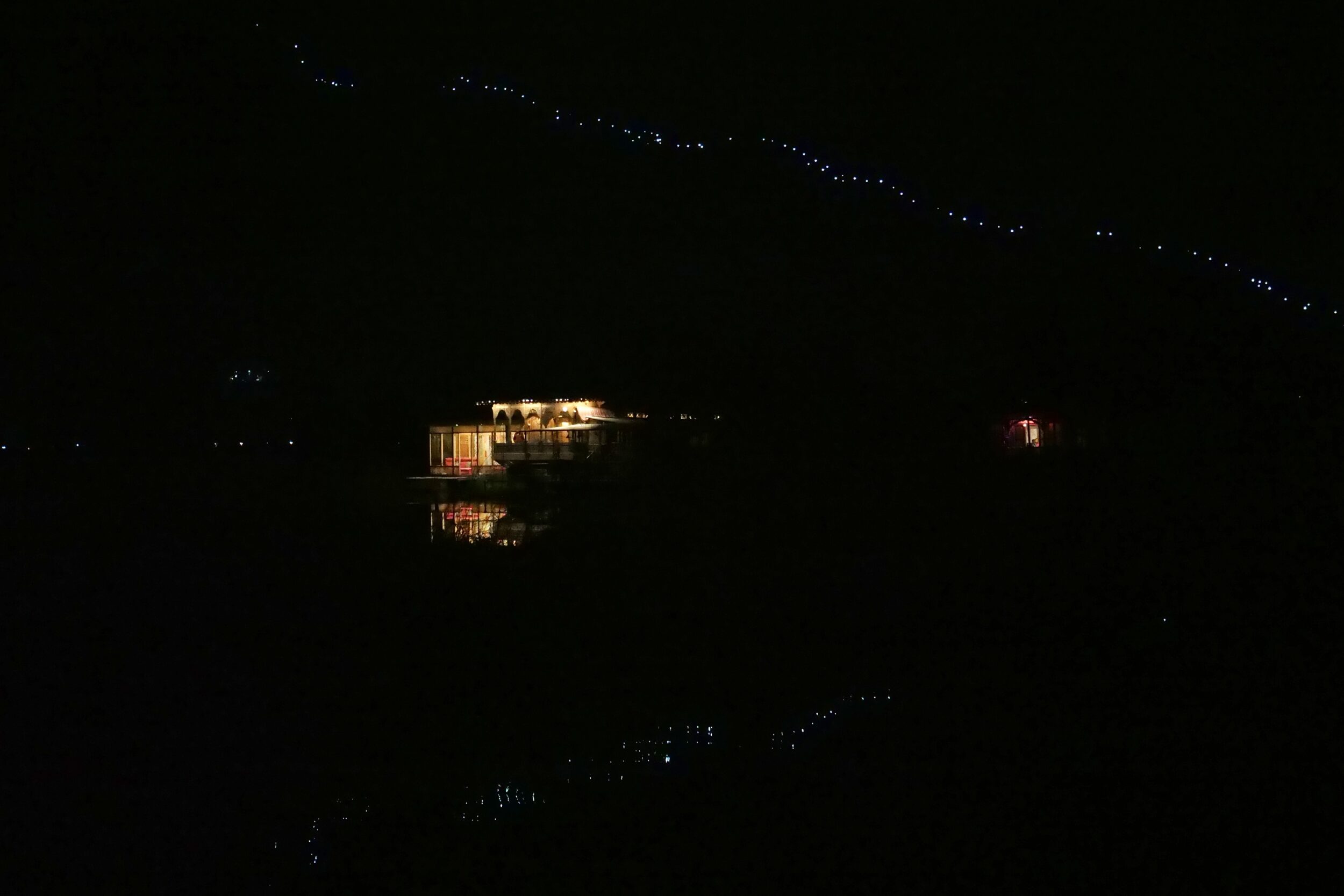I took the photo at 8.54 pm on 04 May 2024.
At that time my vantage point – an entertainment barge – was loud and lively, as the preceding several posts have illustrated.
However, if one looked out across the waters of Dal Lake – and up to the ridge overlooking its southern shore – the scene appeared utterly serene, unruffled, “silent”.
I think that the “string” of lights on the ridgeline illuminates the road/path which leads to Pari Mahal (aka “Abode of Fairies”) – a Moghul palace garden, constructed in the mid-17th century on what had once been the site of a Buddhist monastery.
Click here for an overview of Dal Lake, its attractions, challenges, and currently-severe problems.
Musical bonus
Issued in 1968, Call of the Valley was a landmark “Indian classical” release, most especially as the album which introduced a great many Western ears to the delights of Hindustani music.
Musically, it was a very lyrical suite which depicted a day in the life of a Kashmiri shepherd.
Its participants included Shivkumar Sharma (1938-2022) who almost single-handedly “raised” the status of his instrument from “Kashmiri folk” to “Hindustani classical”; the Kashmiri santoor is a hammered zither/“dulcimer”, of Persian ancestry.
Hariprasad Chaurasia (b 1938) is still the most esteemed/influential exponent of the bansuri – a North Indian bamboo flute which was once regarded as a “folk” instrument, but is now accepted as a Hindustani “classical” one.
Brij Bhushan Kabra (1937-2013) pioneered the acoustic guitar – played with a slide – as a “Hindustani classical” instrument.
Manikrao Popatkar was the album’s tabla player.
This is one section:
.
The entire album – played on the “original” LP’s vinyl – is here:
Pelican Yoga’s next series is much shorter.
It will feature “local heroes” of a Hollywood that is more than 15,000 thousand kilometres distant from L.A. (and 8,500 ks from Kashmir)
